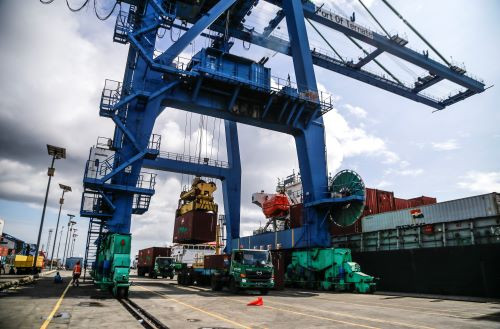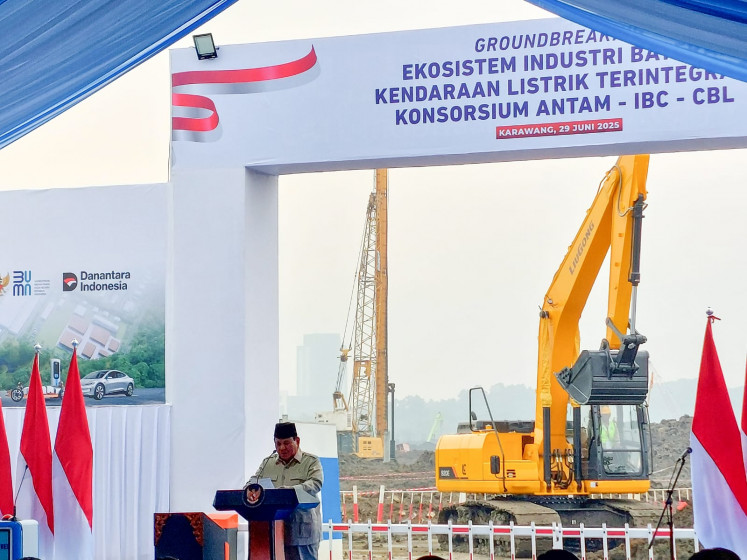Popular Reads
Top Results
Can't find what you're looking for?
View all search resultsPopular Reads
Top Results
Can't find what you're looking for?
View all search resultsChristians fear of being marginalized ahead of polls
Christians in the country are concerned Muslim parties could ratchet up their political leverage by winning more votes in the upcoming legislative elections, and continue to pin their hopes on nationalist parties, a discussion heard Saturday
Change text size
Gift Premium Articles
to Anyone

Christians in the country are concerned Muslim parties could ratchet up their political leverage by winning more votes in the upcoming legislative elections, and continue to pin their hopes on nationalist parties, a discussion heard Saturday.
Dozens of regencies have enforced sharia-based ordinances without challenge recently, sparking fears in Christian communities that Islamic-based parties would push Indonesia toward a nationwide implementation of Islamic law if they win the April polls, speakers of the discussion said.
Centre for Strategic and International Studies researcher J. Kristiadi said that to a certain extent, Christians already felt they were being treated as second-class citizens in the predominantly Muslim country, as evidenced by the issuance of a joint ministerial decree which restricts them from building their places of worship.
“A survey which revealed that 80 percent of university students chose to uphold sharia over Pancasila [pluralistic state ideology] is another cause for concern,” Kristiadi said, referring to a 2006 survey conducted by a nationalist group. The survey revealed that only 4.5 percent of students of prominent state universities in Jakarta, Bandung, Yogyakarta and Malang polled said they believed in Pancasila.
Aspiration for sharia has revived since the fall of New Order in 1998, with Islamic parties making several attempts to enact the strict Islamic law when the People’s Consultative Assembly convened to amend the Constitution between 1999 and 2002.
Of 38 political parties eligible for the April 9 elections, at least eight promote Islamic ideology compared to three Christian-based parties. All eyes, however, will be on the Muslim-based Prosperous Justice Party (PKS), as some pollsters have predicted it will pose a serious challenge to its major nationalist rivals, including the Golkar Party and the Indonesian Democratic Party of Struggle (PDI-P).
The passing into law of the controversial antipornography bill by the House of Representatives last year was dubbed a political move to woo Islamic voters.
Nationalist parties have traditionally dominated politics since the first legislative elections in 1955, but victories by Islamic parties in some regional elections over the last two years havebeen seen as a sign of a changing tendency.
“The nationalist parties may always stay in power, but there is a possibility that the Islamic parties will continue to grow in strength,” PDI-P lawmaker Yasonna H Laoly said.
He said that it would be difficult for Christians to earn political recognition not only because of the absence of a unified Christian party, but also due to a lack of political enthusiasm among the younger generation.
Rachmat T. Manullang of the Terang Indonesia group which hosted the discussion, called on Christians to exercise their right to vote in the elections or they would risk fulfilling their own prophecy. (dis)









